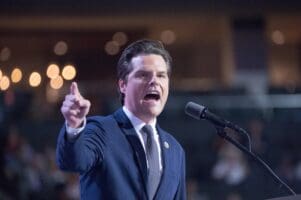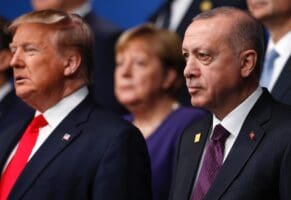Biden’s Gaffe, Elitism, and the Future of American Politics

In the final days before the election, President Biden’s latest blunder has made headlines. At a Trump rally in Madison Square Garden, while responding to a comedian’s comment about Puerto Rico being a “floating garbage patch,” Biden remarked that the real “garbage” was around Trump himself. This slip has only fueled Trump’s base, especially amid backlash from nearly half a million Puerto Rican voters in Pennsylvania, who forced Trump into a defensive stance. Biden tried to clarify his remarks, while Harris distanced herself by emphasizing that no one should be judged based on their voting behavior. In a symbolic move, Trump climbed aboard a garbage truck adorned with American flags, signaling his intent to keep this issue alive.
Irredeemables, Fascists, and Garbage
The “garbage” controversy brings to mind Hillary Clinton’s infamous “basket of deplorables” comment during the 2016 campaign, which many believe cemented her image as an out-of-touch establishment candidate. Such remarks only added to Trump’s appeal as the voice for the “forgotten” and “overlooked” masses. While Biden’s reputation as a “gaffe-prone” candidate may limit the damage, and Harris has attempted to distance herself from his words, the timing still created an unwelcome distraction.
Wasting no time, Trump has capitalized on past Democratic comments like “irredeemables,” “fascists,” and “garbage,” hoping to shift focus away from recent criticisms he faced regarding Nazi general comparisons and Puerto Rico controversies. While this strategy may energize Trump’s core supporters, it’s unclear if it will help sway undecided voters, many of whom express fatigue with divisive rhetoric and are more interested in policy issues that directly affect them, such as the economy, immigration, and abortion. Given Trump’s personal wealth, his accusations of elitism within the Democratic Party may also have limited impact on voter behavior.
With one-third of voters having already cast early ballots, both campaigns are now focused on their ability to mobilize supporters on November 5. Harris’ campaign is likely to leverage the Democratic Party’s traditionally stronger ground operations. In battleground states like Pennsylvania, where Trump’s team has already raised allegations of fraud, the race appears neck and neck. Puerto Rican voters, especially in Pennsylvania, could be a deciding factor, and Trump’s recent outreach to this community underscores its importance.
Harris’ Final Rally
At a final rally in Washington, DC, Harris took aim at Trump, framing him as a threat to American democracy. Speaking near the White House, where Trump’s refusal to accept the 2020 election results had led to the January 6 Capitol riots, Harris delivered a message of unity, vowing to address issues pragmatically. Her appeal to independent and undecided voters marked a contrast with Trump’s combative rhetoric in Madison Square Garden. Nonetheless, Harris balanced her calls for unity with direct criticisms of Trump and unambiguous support for abortion rights, recognizing the limited influence of softer messaging in today’s polarized climate.
Positioning herself as a “candidate of change,” Harris emphasized her career outside Washington, acknowledging the importance of being seen as an outsider—a strategy that worked well for Obama and Trump. Although Harris’ experience includes serving as a senator and vice president, she has attempted to underline her career beyond Washington. However, her close ties with Biden’s policies make it challenging to fully embody the “outsider” status that Trump, despite his billionaire background, has continued to claim.
As the presidential election, one poised to shape American politics and global balance, approaches, the intense focus on trivial controversies such as the “garbage” debate underscores a deep irony. In a political climate where Americans seek solutions to socioeconomic issues and trust in the system is at an all-time low, campaigns steeped in insults and dismissive language have only added to widespread discontent. Many voters feel as if they’re choosing between the lesser of two evils rather than voting for a candidate they genuinely support. Though the intensity of campaign season may explain this divisiveness, the narrowing of America’s electoral discourse to identity-based disputes rather than substantive policy does not bode well for the future. Many American voters will head to the polls amid a pervasive sense of frustration, doubt, and resignation—indicating that the result may fall short of generating any meaningful political renewal.
























